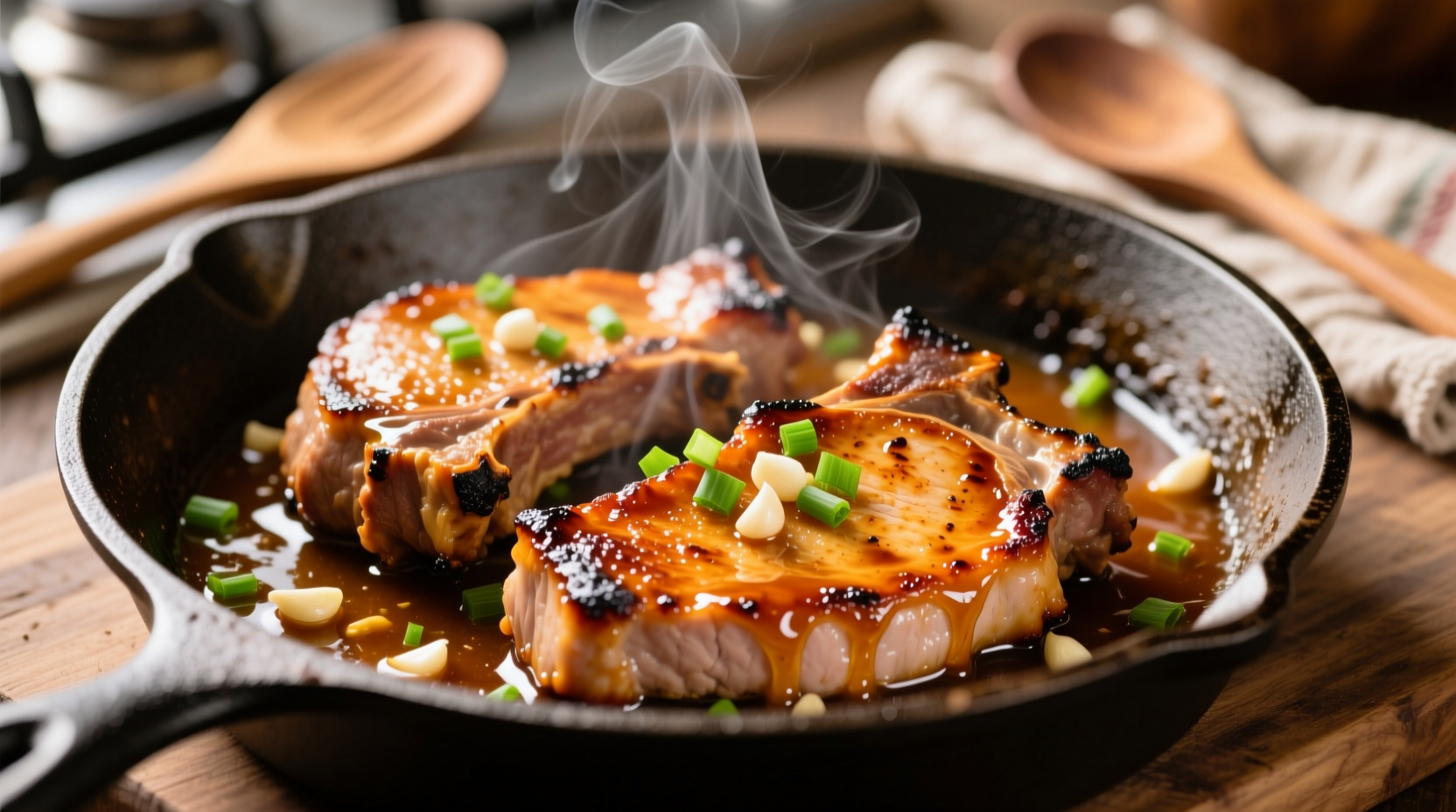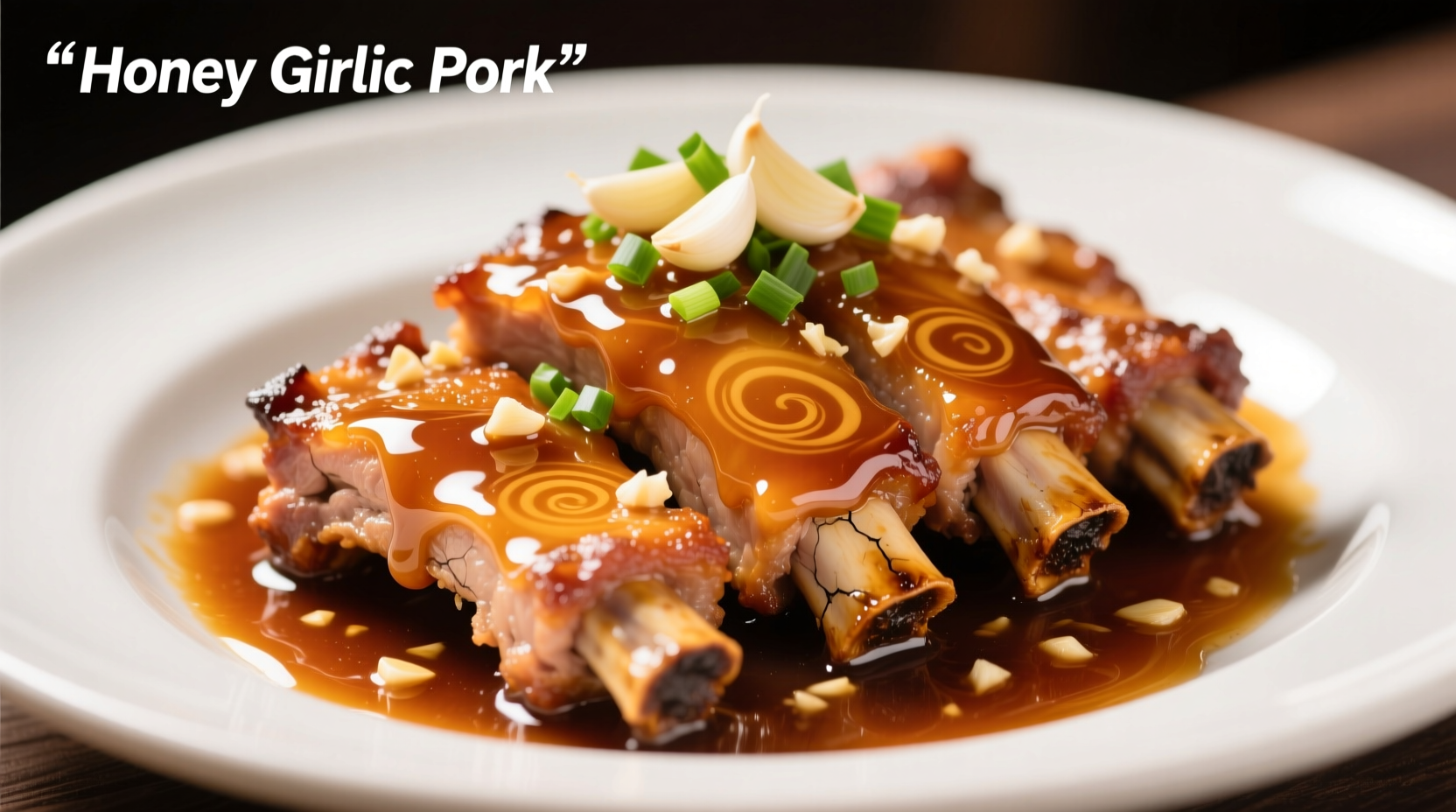Discover how to create the ultimate honey garlic sauce that transforms ordinary pork into an extraordinary meal. This comprehensive guide delivers precise measurements, professional cooking techniques, and science-backed tips to achieve perfectly balanced sweet-savory flavors every time.
The Science Behind Perfect Pork Pairing
Honey garlic sauce creates magic with pork because of complementary flavor chemistry. Pork's natural sweetness interacts with honey's fructose, while garlic's sulfur compounds enhance the meat's umami profile. According to food science research from the USDA Agricultural Research Service, the Maillard reaction between amino acids in pork and sugars in honey creates complex flavor compounds that elevate both ingredients.
| Honey Type | Flavor Profile | Best For |
|---|---|---|
| Clover Honey | Mild, floral | Delicate pork dishes |
| Orange Blossom | Citrus notes | Grilled pork chops |
| Wildflower | Complex, earthy | Slow-cooked pork shoulder |
| Manuka | Robust, medicinal | Strong-flavored cuts like pork belly |
Evolution of Honey Garlic Sauce in Western Cuisine
While garlic and honey have been paired since ancient times, the specific honey garlic sauce for pork gained popularity through Chinese-Canadian cuisine in the 1970s. According to culinary historians at the Food Heritage Conservation Resource Center, this adaptation emerged when Chinese immigrants modified traditional sweet and sour preparations using locally available ingredients. The sauce evolved from Cantonese culinary traditions but developed its distinctive Western profile through restaurant innovation rather than direct cultural transmission.
Critical Technique: Building Flavor Layers
Professional chefs achieve restaurant-quality results through precise technique sequencing:
- Garlic preparation: Mince garlic finely but don't puree - larger pieces provide flavor bursts
- Sauce reduction: Simmer honey and soy sauce for 3 minutes before adding garlic to prevent burning
- Temperature control: Maintain medium heat (325°F/163°C) for optimal caramelization without scorching
- Finishing: Add cornstarch slurry only after pork is nearly cooked to maintain glossy texture
"The critical mistake home cooks make is adding garlic too early," explains Antonio Rodriguez, culinary expert specializing in spice chemistry. "Garlic burns at 325°F, while pork needs higher temperatures to develop crust. Separating these cooking stages prevents bitterness and preserves complex flavors." 
Context Boundaries: When This Sauce Works Best
Honey garlic sauce performs differently depending on pork cut and cooking method. Understanding these context boundaries prevents disappointing results:
- Ideal applications: Pork chops, tenderloin, and loin cuts benefit from quick cooking methods that preserve moisture
- Modified approach: For pork shoulder or belly, reduce honey by 25% and add 2 tablespoons apple cider for balance with fattier cuts
- Avoid with: Pre-marinated or injected pork products, which already contain sugars that will burn
- Temperature warning: Never broil honey-glazed pork above 400°F (204°C) - the sugars will carbonize rapidly
Perfect Pork Cooking Protocol
Follow this professional sequence for flawless results:
- Pat pork dry and season with salt 30 minutes before cooking
- Sear pork in hot oil (400°F/204°C) for 2-3 minutes per side until golden
- Remove pork and reduce heat to medium (325°F/163°C)
- Add honey and soy sauce, simmer 3 minutes
- Add garlic, cook 1 minute until fragrant but not browned
- Return pork to pan, coat with sauce, and cook to 145°F (63°C) internal temperature
- Rest 5 minutes before serving to allow sauce to set
Common Mistakes and Solutions
Even experienced cooks encounter these honey garlic sauce challenges:
- Problem: Sauce too thin
Solution: Mix 1 tablespoon cornstarch with 2 tablespoons cold water before adding - Problem: Sauce too sweet
Solution: Balance with 1 teaspoon rice vinegar per cup of sauce - Problem: Burnt garlic flavor
Solution: Add garlic after reducing honey and soy mixture - Problem: Sauce separates
Solution: Maintain consistent medium heat and whisk constantly
Variations for Dietary Needs
Adapt this versatile sauce for different dietary requirements without sacrificing flavor:
- Gluten-free: Substitute tamari for soy sauce (verify gluten-free certification)
- Lower sugar: Replace half the honey with sugar-free maple syrup alternative
- Spicy version: Add 1 teaspoon sriracha or 1 minced fresh chili with the garlic
- Infused variation: Steep 2 star anise pods in warm sauce for 10 minutes before straining
Storage and Reheating Guidelines
Proper storage maintains sauce quality for future meals:
- Refrigerate in airtight container for up to 5 days
- Freeze sauce separately from pork for up to 3 months
- Reheat gently over low heat, adding 1-2 teaspoons water to restore consistency
- Never microwave honey garlic sauce - uneven heating causes separation
Perfect Pairing Recommendations
Complete your honey garlic pork meal with these complementary sides:
- Steamed jasmine rice with scallions
- Quick-pickled cucumbers with rice vinegar
- Roasted broccoli with sesame seeds
- Cold sesame noodles for contrast











 浙公网安备
33010002000092号
浙公网安备
33010002000092号 浙B2-20120091-4
浙B2-20120091-4